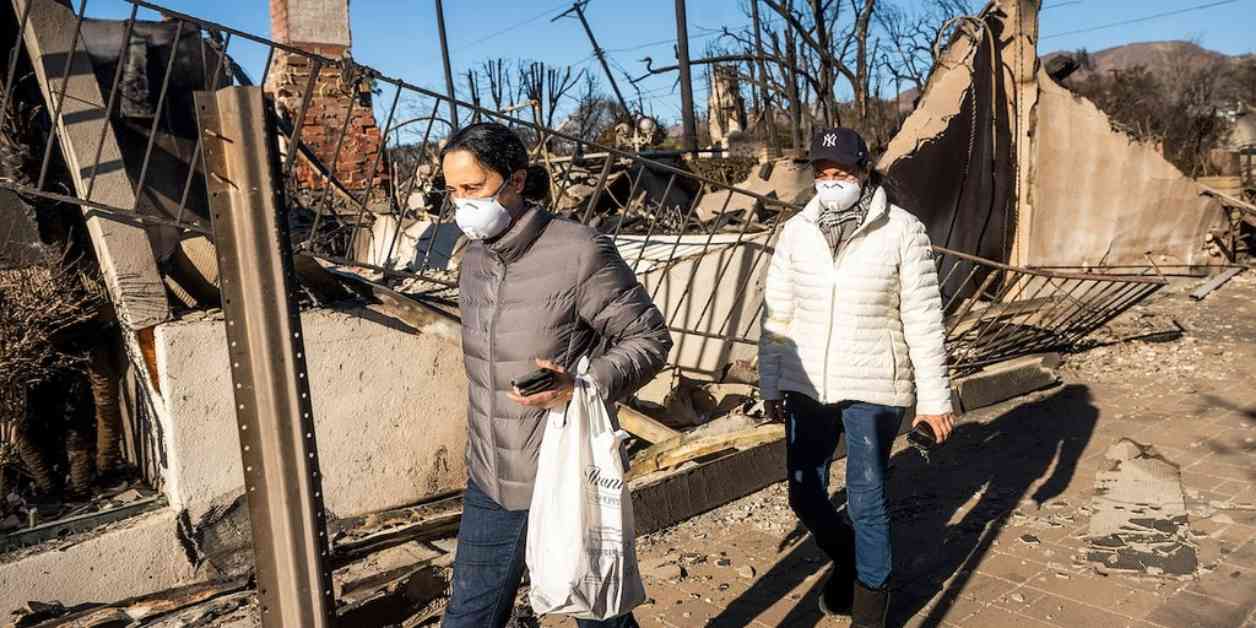Understanding the Health Hazards of Wildfire Smoke: Doctors’ Warnings
The Los Angeles wildfires have caused devastating losses of homes and lives, and survivors may face hidden health effects from wildfire smoke. Wildfire smoke contains a “complex mixture” of fine particles, known as PM2.5, that can pose hazards after short-term exposure, according to the U.S. Environmental Protection Agency (EPA).
Health Effects of Wildfire Smoke
Doctors warn that wildfire smoke can lead to various health effects, including burning eyes, sore throat, cough, sinus problems, fatigue, headaches, chest pain, shortness of breath, and brain fog. Prolonged exposure can worsen existing conditions like asthma, bronchitis, and other chronic respiratory diseases, according to experts.
Risks to Vulnerable Groups
Certain groups are at a higher risk, such as people with underlying heart and lung diseases, infants, young children, and older adults. Wildfire smoke has also been linked to heart and lung problems, brain dysfunction, and mental health issues. A 10-year study revealed a significant mental health impact on Californians exposed to wildfires.
Protecting Your Health Amid Wildfires
Experts recommend several steps to reduce the risk of wildfire health effects, including practicing nasal hygiene, staying indoors during high smoke levels, using HEPA filters, considering temporary relocation, wearing N95 respirator masks, monitoring air quality, and avoiding burned areas.
As a California resident, I vividly recall the fear and anxiety that gripped our community during the wildfires last year. The air quality was so poor that even a short walk outside left me coughing and struggling to breathe. It was a challenging time for everyone, especially those with pre-existing health conditions. The advice from experts on protecting our health during wildfires is invaluable and can make a significant difference in staying safe during such crises. Remember, your health is your most precious asset, so take the necessary precautions to protect yourself and your loved ones during wildfire events. Stay safe and be prepared.


















